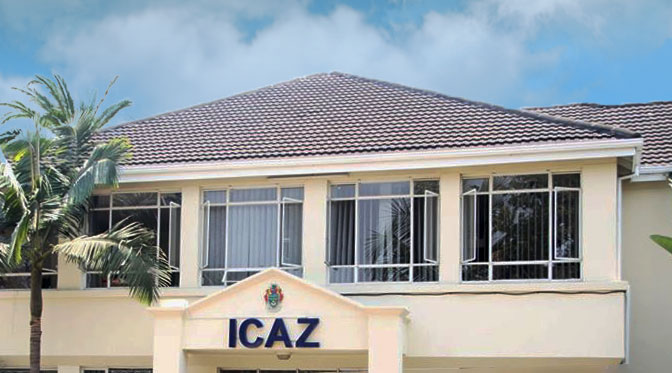Mthuli gets tough on tax defaulter
Finance and Economic Development Minister, Professor Mthuli Ncube, has taken a tough stance against tax defaulters as he seeks to close all leaks and enhance revenue collection efforts.
Presenting the 2023 National Budget, Mthuli said businesses and companies have abused tax relief measures and incentives offered for their benefit.
On the deferment of value added tax (VAT), Mthuli said whereas the VAT deferment facility was put in place to mitigate the cash flow impact on business, the benevolence has, however, been abused by most of the beneficiaries through non-payment after the due date.
As a result, he proposed to review the minimum threshold for the deferment facility from the current US$500 000 to US$1 million, with effect from January 1, 2023, in order to mitigate revenue loss to the fiscus.
On tax debts interest, Mthuli said to curb speculative borrowing, thereby stabilising the exchange rate, the bank policy rate was reviewed to 200 percent, with effect from June 24, 2022.
He said tax revenue has, thus, become a cheaper source of working capital, hence, some companies no longer prioritise remittance of tax, to the detriment of the fiscus.
“In order to limit accumulation of tax debts, I propose to align the interest rate on local currency tax debts from 25 percent to the bank policy rate, with effect from December 1, 2023.
“The interest rate on foreign currency tax debts will, however, remain at 10 percent per annum,” he said.
He noted that despite the increase in the bank policy rate, interest on outstanding tax remains at 25 percent.
The Finance Minister said a number of taxpayers are deliberately delaying payment of tax obligations, to benefit from loss of value.
He said whereas, charging higher interest on outstanding taxes remains an option, this must be complemented with additional measures to induce compliance.
He, therefore, proposed that all outstanding tax debts be converted to the foreign currency equivalent at the time the debt is incurred.
“Payment of outstanding tax will, however, be made in local currency using the prevailing interbank exchange rate at the time of payment.”
Commenting on interest on delayed remittances of tax revenue to the consolidated revenue fund, he said financial institutions are a critical conduit for the real-time remittance of tax payments to the Consolidated Revenue Fund (CRF).
However, a number of financial institutions are delaying remittance of tax payments to the CRF, thereby depriving the Fiscus of resources to fund critical Government expenditure and some of the financial institutions are also utilising the funds as a cheap source of overnight liquidity support.
Therefore, Mthuli compels all financial institutions to remit tax collections to
the CRF within 48 hours of receipt from taxpayers.
“Where financial institutions fail to meet the prescribed timeline for remittance, interest will be chargeable at a rate of 15 percent and the bank policy rate, currently pegged at 200 percent, on local and foreign currency remittances, respectively.”
The Finance Minister said specified taxpayers are compelled to submit self-assessment returns not later than four months after the end of the tax year or year of assessment which begins in January and ends in December.
He said this legislative requirement does not, however, cater for circumstances where taxpayers have approved financial periods that end on a date other than end of a year of assessment.
Mthuli proposed to compel taxpayers with a year of assessment other than the tax year to submit self-assessment returns no later than four months after the year of assessment approved by the Commissioner.
“As a consequence of the proposed measures, quarterly payment dates for such taxpayers will be aligned to the approved year of assessment,” he said.
On stamp duty, brokers note, the Minister said for purposes of authentication, a Brokers Note confirming the purchase of a marketable security or any movable or immovable property must be physically stamped. However, the physical stamping of brokers notes lags behind the technological developments.
Therefore, Mthuli proposed these be replaced with an e-Generated Brokers Note and the e-generated Brokers Note must, however, be approved by ZIMRA for purposes of safeguarding revenue, in view of fraudulent activities.
On the rebate of duty on goods imported by relief, welfare and church organisations for free distribution to the less privileged, the current legislation provides for a rebate of duty on goods imported for free distribution among persons in need by any international or regional organisation, body or agency which has been designated by the Minister.
It has, however, been observed that some organisations are importing commercial consignments for resale on the local market under the guise of donations, to the detriment of locally produced products.
As a result, the Minister proposed to limit such donations to exclude commercial consignments and locally produced goods from a rebate of duty facility.
The penalty for late submission of tax returns is currently pegged at $30 per day following redenomination of specified monetary amounts on a one-to-one basis.
Mthuli said the penalty is no longer deterrent, hence, proposed to peg the penalty at US$30 payable at local currency equivalent for each day the return remains outstanding.
Maintenance of an accurate taxpayer register to facilitate payment of tax, risk management and compliance management is a critical element of tax administration.
However, the Minister noted that tax administration continues to experience challenges with companies that deliberately opt not to register for tax or taxpayers that do not update their details, rendering the tax register inaccurate.
Mthuli therefore compelled all companies to register for tax purposes with the Zimbabwe Revenue Authority within 30 days of such company registration.
He further proposed to compel taxpayers to update their registration details with ZIMRA.
Failure to comply with the requirements will attract a penalty of US$30 per day.
Economist, Vince Musewe, said tax evasion in Zimbabwe is huge and needs to be stemmed.
“Therefore, heavy penalties can achieve that,” he said.-ebusinessweekly










